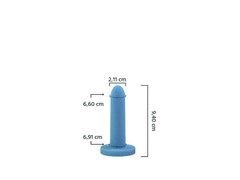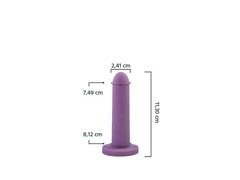How do you exercise your pelvic floor muscles?

We have already written how extremely important pelvic floor muscle exercises are. Today we want to discuss the ways in which we can conduct these exercises. In the article below, you will surely find the method that is right for you. To work! Find out how to rehabilitate your pelvic floor muscles.
MANUAL REHABILITATION
Through a vaginal examination, your doctor assesses the quality of your perineal muscle contraction and any painful or scarred spots after giving birth. Direct contact with the body is still the most effective way of knowing how it works. Then, after the examination, the doctor, according to the patient's needs, can stimulate the muscles by making various movements with the fingers (stretching, resistance, back pressure, etc.). Moreover, it can be combined with visualization exercises. This way you can get a perfect picture of the pelvic floor.
BEHIND
A good method to start with. In a way, the doctor is the guarantor of good contractions. Therefore, when the patient gets to know how their muscles work with the support of a specialist, they can start training at home.
AGAINST
Examination and stimulation performed by a specialist is not a procedure that all women dream about. However, you should know that specialists are very gentle and do their best to make the experience as uncomfortable as possible.
ELECTROSTIMULATION
This method aims to stimulate the nerves of the perineal muscles with a light current to strengthen the pelvic floor. These currents are dissipated by the vaginal probe. This causes the muscles to contract mechanically. Perineal electrostimulation can be performed at home or by a healthcare professional.
BEHIND
This method, especially suitable for very difficult cases, allows you to locate the pelvic floor muscles. Sometimes electrostimulation is the first step towards a biofeedback approach, or in addition, especially for very weak pelvic floor muscles.
AGAINST
Vaginal electrostimulation may be unpleasant for some women, therefore the intensity of the current should be adjusted depending on the patient's sensitivity. Thanks to this method, a woman does not voluntarily contract her muscles, so it is very important to supplement this form of therapy with training that ensures voluntary contractions.
BIOFEEDBACK
Instead of indicating what action to take, the feedback provides information about the action that has been taken. Biofeedback is simply the feedback of a biological function in the body. This allows the user to identify and modify body functions that they did not know about for self-control. Biofeedback provides information (visual or audible signal) about the contraction of the pelvic floor muscles. In other words, biofeedback gives a visual trace of your voluntary pelvic muscle contractions.
These signals tell the patient when to voluntarily contract and when to relax the muscles. By focusing attention on the pelvic floor, the woman takes control of her body step by step. With this innovative and patented technology, you visualize contractions and progress.
An example of such a device is Emy (learn more)
BEHIND
The biggest advantage is that biofeedback offers training based on voluntary contractions and allows the patient to really become aware of the contractions, identify and control the muscles. He receives real-time information about his contraction and can adapt his activity to the goals he needs to achieve in each exercise.
AGAINST
There is a risk that the wrong muscle group (abdomen, abdominals, or adductors) will be involved during contractions. Make sure you contract your pelvic floor muscle properly before attempting this method.
INDEPENDENT EXERCISES
You can also train your pelvic floor muscles with self-exercise. By breathing the diaphragm and chest, and by working within the pelvic floor muscles, exercises can be performed between training sessions carried out by a different method by a specialist.
BEHIND
These exercises are simple and can be done at home at any time (watching a movie, brushing your teeth, bed ...). By doing them regularly, you make sure that you are influencing the tone of the pelvic floor muscles.
AGAINST
Patients often lose their motivation and simply forget about exercising during their daily activities in the dawn.
Remember that an article on the Internet will never replace a medical consultation, so talk to your doctor about the method you choose.
























